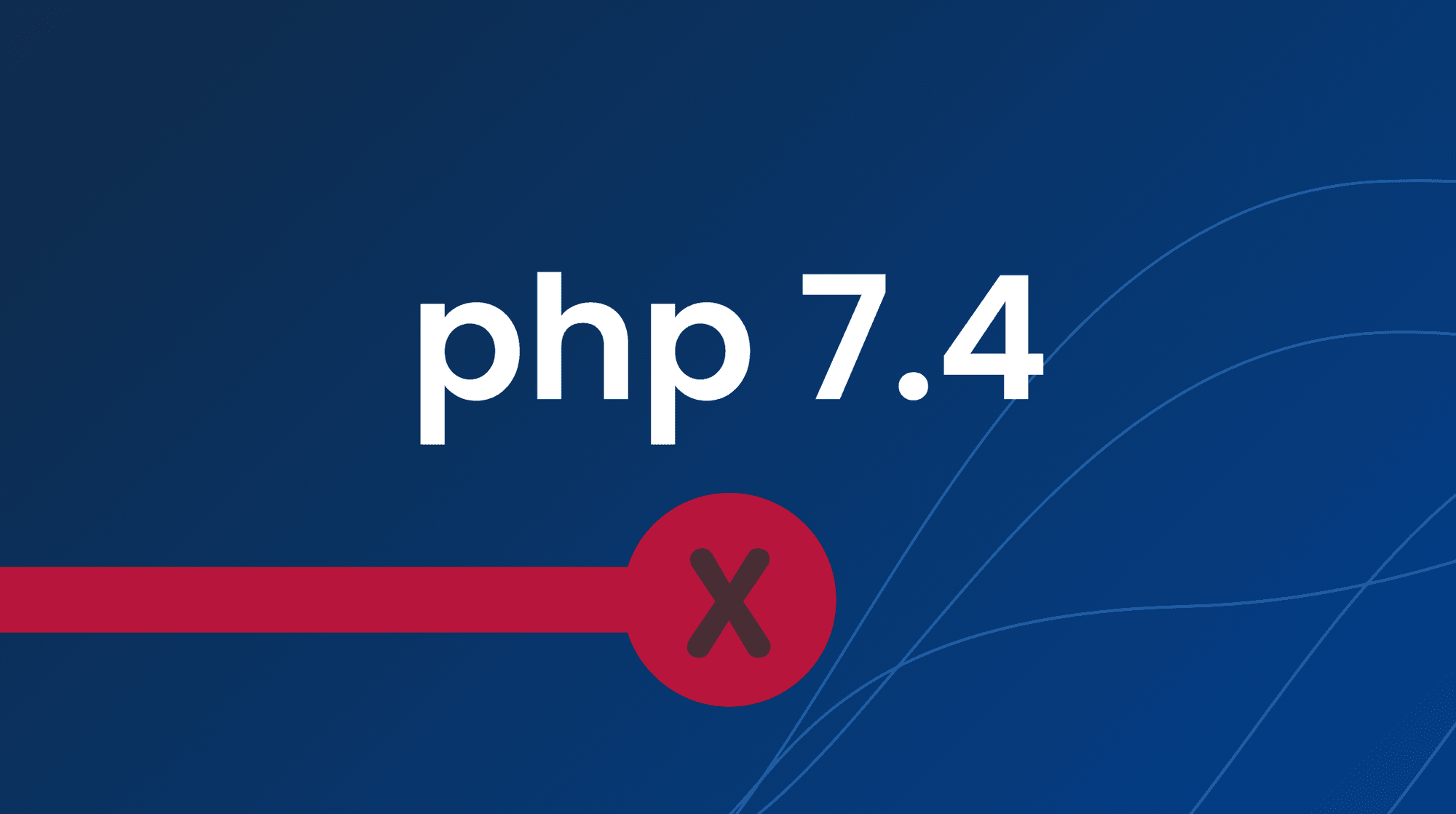在當今數位時代,雲端的力量是不可否認的。從儲存檔案到運行複雜的應用程序,雲端技術徹底改變了我們的工作和生活方式。當談到管理網站時,遷移到雲端已經成為了遊戲規則的改變。
WordPress 是一款流行且使用者友善的內容管理系統,也不例外。透過將 WordPress 遷移到雲端,使用者可以獲得多種優勢,從而增強可靠性、儲存、效能和安全性。無論您是小型企業主、部落客或 Web 開發人員,本文都將引導您完成將 WordPress 網站成功遷移到雲端的步驟。
但為什麼一開始就要遷移呢?讓我們仔細看看為什麼將 WordPress 遷移到雲端是明智選擇。
WordPress 和雲端:概述
在當今的數位環境中,擁有強大的線上影響力對於任何企業或個人來說都至關重要。網站作為您的虛擬店面,讓您向全球觀眾展示您的產品、服務或內容。當談到選擇合適的平台來建立和管理您的網站時,WordPress 無疑是最受歡迎的選擇之一。但是託管怎麼辦?這就是雲發揮作用的地方。
👉 閱讀更多關於 WordPress 和雲端託管
為什麼選擇 WordPress?
WordPress 是一種多功能且使用者友好的內容管理系統 (CMS),可為網路上超過 40% 的網站提供支援。它提供廣泛的功能和自訂選項,適合從部落客到大型電子商務企業的每個人。以下是許多網站所有者選擇 WordPress 的一些原因:
- 易於使用:WordPress 的直覺式介面讓幾乎沒有技術經驗的使用者也能輕鬆建立和管理自己的網站。
- 靈活性:WordPress 提供數千種主題和插件,可讓您自訂網站的設計和功能以滿足您的特定需求。
- SEO友善:WordPress 本質上是為搜尋引擎優化 (SEO) 構建的,使您的網站更容易在搜尋引擎結果頁面 (SERP) 上獲得更高的排名。
- 支持性社區:WordPress 擁有龐大的開發人員、設計師和用戶社區,他們為其發展做出貢獻並透過論壇、部落格和線上社群提供支援。
為什麼選擇雲端託管?
雖然 WordPress 是您網站平台的絕佳選擇,但它需要可靠的託管解決方案來確保最佳效能和安全性。這就是雲端託管的作用所在。
- 可擴展性:雲端託管可讓您根據流量波動輕鬆擴大或縮小網站資源。這可以確保您的網站即使在流量高峰期或訪客數量突然激增的情況下也能保持穩定並表現良好。
- 可靠性:雲端託管在分佈在不同地理位置的多台伺服器上運作。這種冗餘消除了單點故障的風險,並確保即使一台伺服器發生故障,您的網站仍然在線且可訪問。
- 成本效益:雲端託管通常採用即用即付模式,讓您僅為實際使用的資源付費。這使得它成為一種經濟高效的選擇,特別是對於小型企業或具有不同流量模式的網站。
- 安全:雲端託管供應商通常會採取強大的安全措施,包括防火牆、定期備份和先進的威脅偵測系統。這有助於保護您的網站免受潛在的安全漏洞和資料遺失。
✨ 將 WordPress 與雲端託管結合可以將您的網站提升到新的高度,提供無縫的使用者體驗、可擴展性和高級安全功能。要了解有關 WordPress 和雲端之間的完美合作關係的更多信息,請查看此 綜合指南.
將 WordPress 遷移到雲端的原因
提高可靠性
對於您的 WordPress 網站來說,可靠性至關重要。您最不希望看到的情況是您的網站經常停機,讓您的訪客感到沮喪並有可能將他們趕走。這就是遷移到雲端可以帶來重大改變的地方。
將 WordPress 遷移到雲端可提供可靠的正常運行時間,最大限度地減少您的網站停機的可能性。雲端託管提供者在不同位置擁有多個伺服器,確保如果一台伺服器發生故障,您的網站將無縫切換到另一台伺服器,而不會中斷服務。
透過利用雲端的強大功能,您可以確保您的網站始終可供訪客訪問,從而創造積極的用戶體驗並保護您的線上聲譽。因此,如果您重視可靠性並希望為用戶提供流暢的瀏覽體驗,那麼是時候考慮將 WordPress 遷移到雲端了。
充裕的儲存空間
隨著網站的發展,儲存的需求也會隨之成長。傳統的網站寄存方案通常會對 WordPress 網站可用的儲存空間量施加限制。這可能是一個很大的限制,特別是當您的網站內容豐富或您計劃擴大您的線上影響力時。
雲端儲存提供幾乎無限的空間 適用於您的 WordPress 網站,消除傳統網站寄存的限制。透過雲端託管,您可以根據需求的變化輕鬆擴展儲存容量。無論您是小型企業主還是擁有大型媒體檔案的內容創作者,雲端都可以讓您自由地儲存所有網站數據,而無需擔心空間不足。
透過將 WordPress 遷移到雲端,您可以確保您的網站有足夠的成長空間並容納您的內容,同時又不會影響效能或使用者體驗。儲存限制將不再阻礙您擴大線上影響力。
提高性能
網站速度在用戶滿意度和搜尋引擎排名中起著至關重要的作用,這已不是什麼秘密。緩慢的載入時間可能會讓訪客感到沮喪,從而導致更高的跳出率和更低的轉換率。如果您的 WordPress 網站面臨效能困境,那麼遷移到雲端可能是有效的解決方案。
將 WordPress 遷移到雲端可以顯著提高網站的速度和效能。雲端託管供應商利用 SSD 儲存、內容分發網路 (CDN) 和快取機制等先進技術來優化網站載入時間。
借助雲端的強大功能,您的網站可以受益於更快的伺服器回應時間、減少的延遲和增強的快取功能。這意味著您的訪客可以享受閃電般的瀏覽體驗,從而提高參與度和轉換率。
增強安全性
當涉及到您的 WordPress 網站的安全性時,您永遠不能太謹慎。網路威脅變得越來越複雜,因此採取強有力的安全措施至關重要。將 WordPress 移轉到雲端可以讓您安心,因為您知道您的網站是安全的。
雲端伺服器擁有強大的安全措施,使其成為遷移 WordPress 網站的理想選擇。雲端託管供應商在基礎設施安全方面投入了大量資金,採用了防火牆、入侵偵測系統、定期備份和 SSL 憑證等措施。
此外,雲端託管供應商通常擁有專門的安全專家團隊,負責持續監控和降低潛在風險。這可確保您的網站免受網路威脅並最大限度地降低資料外洩的風險。
透過將 WordPress 遷移到雲端,您可以利用雲端託管提供者提供的高級安全功能,保護您的網站和使用者的敏感資訊。
總而言之,將 WordPress 遷移到雲端具有幾個引人注目的優勢。提高可靠性可確保正常運作時間,充足的儲存空間可實現可擴充性,改進的效能可增強使用者體驗,增強的安全性可保護您的網站免受網路威脅。如果您希望充分利用您的 WordPress 網站,那麼是時候考慮雲端託管的好處了。 在此了解更多有關雲端託管對於基於 WordPress 的商店的重要性的資訊。
WordPress 遷移到雲端的步驟
將您的 WordPress 網站遷移到雲端可能會徹底改變您網站的效能和可擴展性。雲端提供了靈活且可擴展的基礎設施,可滿足不斷增長的網站的需求。如果您已準備好將 WordPress 網站移轉到雲端中,請按照以下步驟操作:
備份您的 WordPress 網站
在開始遷移過程之前,建立 WordPress 網站的備份至關重要。此步驟可確保您在遷移過程中出現任何問題時有一個後備選項。備份 WordPress 網站的方法如下:
- 安裝可靠的備份插件,如 UpdraftPlus 或 Duplicator。
- 配置備份設定以包含資料庫、主題、外掛程式和媒體檔案。
- 啟動備份程序並將備份檔案儲存到安全的位置。
選擇雲端託管提供者
選擇正確的雲端託管提供者對於成功進行 WordPress 遷移至關重要。考慮可靠性、可擴展性、定價以及提供者對 WordPress 的支援等因素。以下是一些值得考慮的流行雲端託管提供者:
比較這些提供者的功能和價格,以確定最適合您需求的提供者。
在雲端伺服器上安裝WordPress
一旦您選擇了雲端託管供應商,下一步就是在雲端伺服器上安裝 WordPress。雖然不同提供者的安裝過程可能略有不同,但一般步驟如下:
- 登入您的雲端託管帳戶。
- 建立一個新的虛擬機器實例或伺服器。
- 配置伺服器設置,包括作業系統、磁碟空間和網路配置。
- 使用 SSH 或提供者的管理介面在伺服器上安裝 WordPress。
遷移 WordPress 資料庫
要遷移您的 WordPress 網站,您需要將資料庫從現有託管服務提供者轉移到雲端伺服器。請依照以下步驟完成資料庫遷移:
- 從您目前的託管服務提供者匯出您的 WordPress 資料庫。您可以使用 phpMyAdmin 或 WP-CLI 等工具將資料庫匯出為 SQL 檔案。
- 將 SQL 檔案匯入到雲端伺服器上的資料庫。再次,您可以使用 phpMyAdmin 或 WP-CLI 執行此步驟。
傳輸WordPress文件
除了遷移資料庫,您還需要將 WordPress 檔案傳輸到雲端伺服器。傳輸檔案的方法如下:
- 使用檔案傳輸協定 (FTP) 用戶端(例如 FileZilla)連接到您目前的託管服務提供者。
- 將整個 WordPress 目錄從您目前的託管服務提供者下載到您的本機。
- 使用 FTP 連接到您的雲端伺服器並將 WordPress 檔案上傳到適當的目錄。
更新 DNS 設定
遷移完成後,最後一步是更新您的 DNS 設定以將您的網域重新導向到新的雲端伺服器。更新 DNS 設定的方法如下:
- 登入您的網域註冊商或 DNS 託管提供者的儀表板。
- 找到您網域的 DNS 設定並找到 A 記錄或 CNAME 記錄項目。
- 更新 IP 位址或網域名稱以指向您的新雲端伺服器。
值得注意的是,DNS 變更可能需要一些時間才能完全傳播,因此在此過程中網站可能會出現短暫的停機時間。
就這樣!透過遵循這些步驟,您可以成功地將 WordPress 網站遷移到雲端並享受可擴展和高效能託管環境的好處。祝您遷移愉快!
常見挑戰及其克服方法
將 WordPress 網站遷移到雲端伺服器時,您可能會遇到一些挑戰。理解和應對這些挑戰對於確保順利且成功的遷移過程至關重要。在本節中,我們將討論您可能面臨的三個常見挑戰,並提供克服這些挑戰的實用解決方案。
效能問題
遷移過程中的關鍵關注點之一是雲端伺服器的效能。遷移後,必須監控伺服器的效能以確保其針對您的 WordPress 網站進行了最佳化。以下是一些解決效能問題的技巧:
- 優化您的網站: 對您網站的效能進行徹底分析,並實施快取、影像優化和程式碼最小化等優化技術,以縮短載入時間。
- 選擇正確的伺服器配置: 確保您選擇的雲端伺服器具有足夠的資源來處理您網站的流量和需求。考慮 RAM、CPU 和儲存空間等因素以確保流暢的效能。
- 利用內容傳遞網路 (CDN): CDN 服務可協助將您的網站內容分發到全球多個伺服器上,從而減少延遲並改善不同地理位置使用者的頁面載入時間。
安全問題
保護您的 WordPress 網站免受潛在的安全威脅至關重要,尤其是在雲端伺服器上運行它時。您可以採取以下步驟來增強 WordPress 網站的安全性:
- 實施強大的防火牆: 安裝可靠的 WordPress 防火牆插件,例如 保護您的 WordPress 網站,防止未經授權的存取和惡意攻擊。
- 保持你的外掛和主題更新: 定期更新您的 WordPress 外掛和主題,以確保您擁有最新的安全性修補程式和錯誤修復。
- 啟用雙重身分驗證: 為您的 WordPress 登入啟用雙重認證,以增加額外的安全層並防止未經授權的存取。
遷移挑戰
在遷移過程中,您可能會遇到一些可能影響 WordPress 網站的可用性和資料完整性的障礙。以下是需要注意並克服的一些挑戰:
- 執行徹底備份: 在開始遷移之前,必須對您的 WordPress 網站(包括資料庫和檔案)進行徹底備份,以避免在遷移過程中發生潛在的資料遺失。
- 在暫存環境中測試遷移: 在將您的網站遷移到雲端伺服器之前,請在暫存環境中測試遷移,以便在任何問題或不相容性影響您的即時網站之前識別並解決它們。
請記住,雖然這些挑戰乍一看似乎很艱鉅,但透過適當的規劃和正確的策略,您可以克服它們並確保成功將您的 WordPress 網站遷移到雲端伺服器。
“將您的 WordPress 網站遷移到雲端伺服器似乎很有挑戰性,但透過正確的策略,您可以克服效能問題,增強安全措施,並有效應對遷移挑戰。”
結論
總而言之,將您的 WordPress 網站遷移到雲端可以為您的線上形象帶來許多好處。透過提高可靠性、豐富的儲存、改進的效能和增強的安全性,雲端的強大功能為 WordPress 用戶提供了豐富的機會。
然而,必須牢記的是,遷移可能會帶來相當多的挑戰。在此過程中可能會出現效能問題、安全性問題和遷移挑戰。但不要害怕,只要具備正確的知識和準備,這些障礙就可以克服。
總的來說,透過 WordPress 遷移釋放雲端的強大功能是為您的網站打造更強大、更具可擴展性的基礎架構的一步。那麼,為何要等待呢?大膽嘗試,探索雲端為您帶來的無限可能。
為了簡化您的 WordPress 遷移流程並確保無縫過渡,請考慮使用可信賴的託管 WordPress 雲端託管平台,例如 Managed-WP™。透過 Managed-WP,您可以受益於他們的專業知識、全天候 WordPress 支援以及備份和修補程式管理服務。體驗 Managed-WP 為您的數位體驗帶來的自由和安心。
🌐 了解更多關於 Managed-WP 的資訊 – 您值得信賴的 WordPress 雲端託管平台 🌐
常見問題解答
- 什麼是 WordPress 遷移?
WordPress 遷移是指將 WordPress 網站從一個託管服務提供者或伺服器移至另一個託管服務提供者或伺服器的過程。它涉及傳輸所有網站文件、資料庫和設置,以確保網站在新伺服器上正常運作。
- 為什麼我需要遷移我的 WordPress 網站?
您可能需要遷移 WordPress 網站的原因有很多,例如更改託管服務提供者以獲得更好的效能、升級到更強大的伺服器,或將您的網站從本機開發環境移至即時伺服器。
- 我可以手動遷移我的 WordPress 網站嗎?
是的,您可以手動遷移您的 WordPress 網站,但這需要技術知識並且可能很耗時。它涉及導出資料庫、傳輸檔案、配置新伺服器以及更新必要的設定。
- 是否有可用的 WordPress 遷移外掛?
是的,有多個 WordPress 遷移外掛可用於簡化遷移過程。一些流行的包括 Duplicator、All-in-One WP Migration 和 Migrate Guru。這些插件使遷移過程自動化並大大降低了複雜性。
- 在遷移我的 WordPress 網站之前應該採取哪些預防措施?
在遷移您的 WordPress 網站之前,請務必備份您的所有檔案和資料庫,以確保您擁有安全網。此外,您應該在新伺服器上徹底測試您的網站,以識別任何潛在問題或相容性衝突。




















